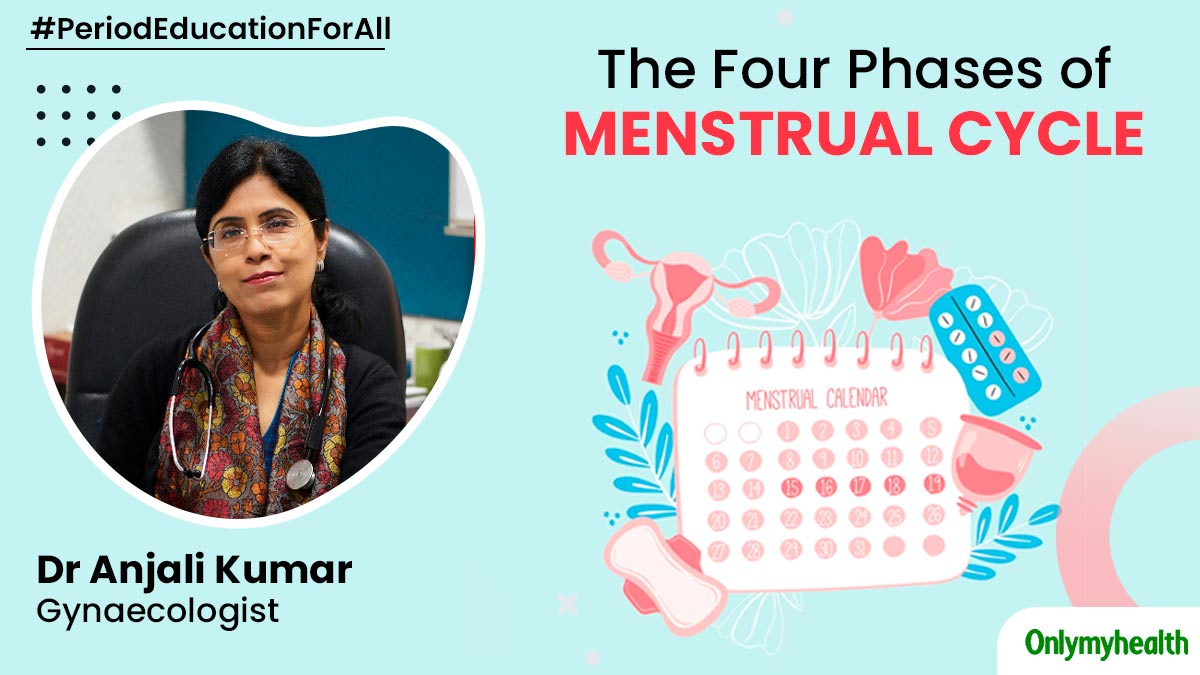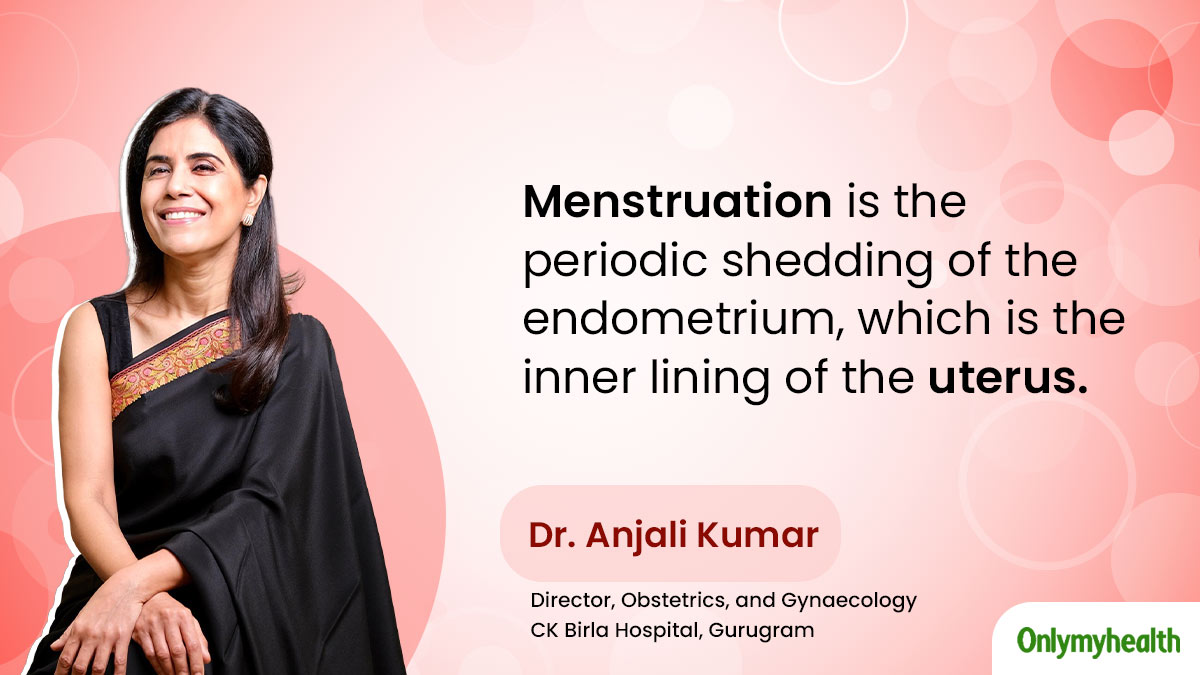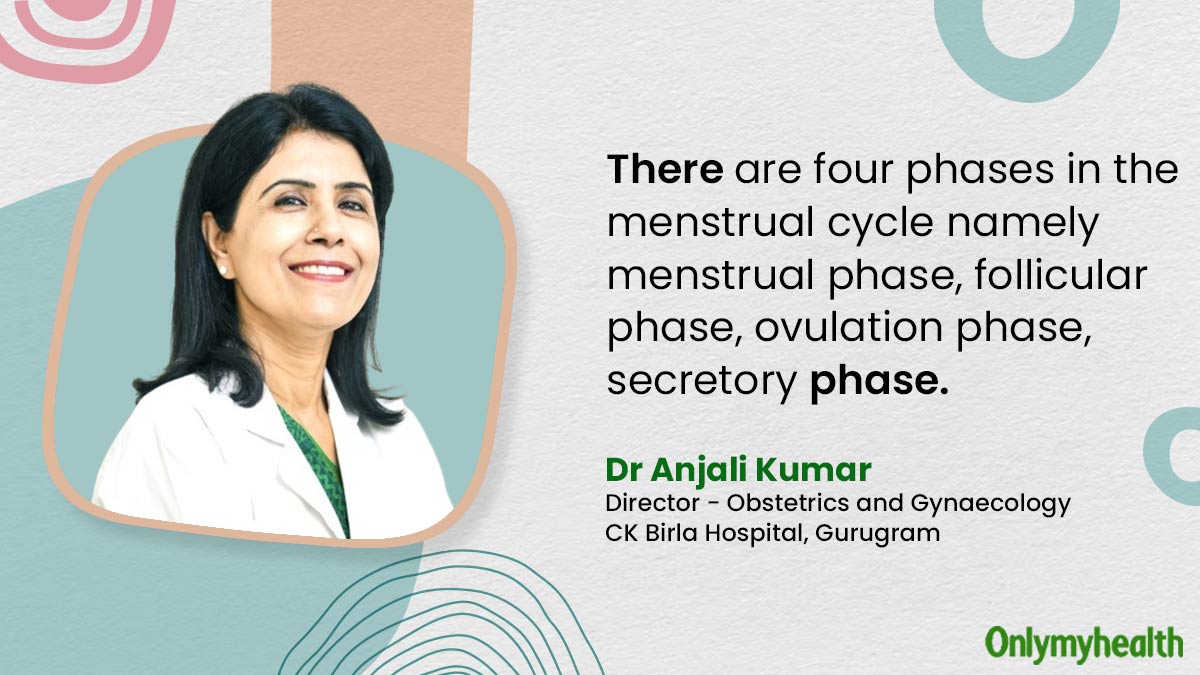
Menstruation is not just a determinator for pregnancy, rather it has a greater role to play in terms of reproductive health. For those who are still learning about menstruation, it is crucial to understand that it is part of a natural, hormonal cycle that prepares the body for potential pregnancy.
Table of Content:-
Every month, your body goes through a natural cycle where hormones like oestrogen and progesterone rise and fall. These changes help release an egg from your ovary and build up the lining of your uterus in case pregnancy happens. But if the egg isn’t fertilised, your body doesn’t need that lining, so it sheds it.
This article will help you understand the science behind menstruation, the four crucial phases of a menstrual cycle, and the duration it lasts. Speaking with the OnlyMyHealth team, Dr Anjali Kumar (Maitriwoman for Instagrammers), Director-Obstetrics and Gynaecology, CK Birla Hospital, Gurugram, help answer some of the burning questions.
Also Read: #PeriodEducationForAll: Gynaecologist Anjali Kumar On Why Period Talk Is Also Necessary For Men
What Is Menstruation?

According to Dr Kumar, menstruation is the periodic shedding of the endometrium, which is the inner lining of the uterus. “Under the influence of the hormones, which are released from our brain, the endometrium thickens in the first half of the cycle. After ovulation, it thickens further and towards the end of the cycle, when the hormones are withdrawn, this lining becomes dead and it is shed off, leading to monthly bleeding,” she explained.
Adding to the explanations, she said, “There’s nothing dirty or shameful about it. This happens purely because of the hormonal changes in the body.”
The Four Menstrual Phases

Dr Kumar said, “There are four phases in the menstrual cycle namely menstrual phase, follicular phase, ovulation phase, and secretory phase.”
“The first phase is when a woman is having periods. The second phase is called the proliferative phase or follicular phase, which is when the eggs are developing in the ovary. And while they’re developing, they create a hormone called oestrogen, which makes the lining of the uterus thick. In the middle of the cycle, which is the third or the ovulatory phase, the follicle becomes mature and it ruptures. When it ruptures, certain hormones like progesterone are released, leading to the fourth phase called the secretory phase. During this phase, the endometrium becomes thicker and towards the end of the cycle, the egg dies, all the hormones are withdrawn, and the endometrium dies and is shed off,” the doctor explains in detail.
Also Read: Premenstrual Syndrome: Definition And 6 Tips For Management
‘The Length Of The Menstrual Cycle Varies From Person To Person’
According to Dr Kumar, the length of a menstrual cycle can vary from person to person. There is nothing known as a perfect menstrual cycle. A normal menstrual could be anything between 22 to 35 days and the periods could last anything between two to eight days, the doctor said.
“The length of the menstrual cycle depends upon the length of the follicular phase. So the secretory phase is fixed for 14 days. But women who have longer cycles have longer follicular phases, whereas women who have shorter cycles have shorter follicular phases. The secretory phase however remains constant,” the doctor explains.
View this post on Instagram
Conclusion
Every menstrual cycle is different and there is nothing known as a perfect menstrual period. Some women may have longer cycles, while others may get their periods faster or in less than a month's time. Knowing and understanding the different phases of the menstrual cycle helps in getting familiar with your cycle. It can help you stay up to date with any changes or missed periods, which need attention.
Also watch this video
How we keep this article up to date:
We work with experts and keep a close eye on the latest in health and wellness. Whenever there is a new research or helpful information, we update our articles with accurate and useful advice.
Current Version